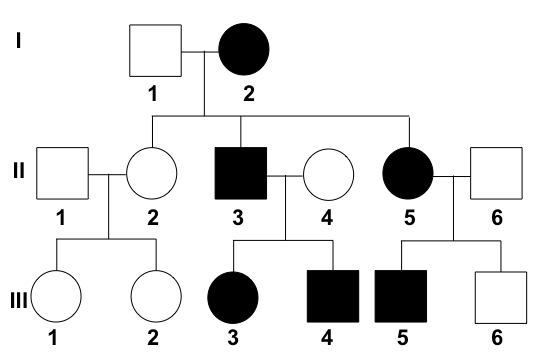The phase where DNA replication occurs
Synthesis (s phase)
This body system is responsible for contains organs, such as the stomach and small intestine, that break down food into smaller molecules?
Digestive system
The concept that organisms who are best suited for their environment will survive longer and reproduce more.
Natural selection
List one biotic and one abiotic factor.
Biotic = living organisms
Abiotic = non-living things (sun, water, etc)
What two things increase genetic variation in meiosis?
Crossing over and independent assortment.
The first phase of mitosis is called?
Prophase
Which organ contracts and relaxes, causing lungs to expand and get smaller when breathing?
Diaphragm
Any inherited trait that increases an organism's chance of survival is known as this.
Adaptation
Which organisms have the most available energy in a food pyramid?
Primary producers
What variable in an experiment do you actively change between each test group?
Independent variable
What organelle is the powerhouse of a cell?
Mitochondria
What type of dominance occurs when both alleles are present they will mix to create a new phenotype/trait (ex: wavy hair)
Incomplete dominance
Which theorist believed that new species arises due to natural selection.
Charles Darwin
List the 4 human impacts we discussed in class.
Climate change, water pollution, invasive species, and deforestation
Give an example of qualitative and quantitative data.
Qualitative = observations, senses, or answers to open-ended questions
Quantitative = numerical or measurable data
Find the Amino Acids
TAC - AGT - CTC - CCC - GAA - ACC

DNA: TAC - AGT - CTC - CCC - GAA - ACT
RNA: AUG - UCA - GAG - GGG - CUU - UGA
Amino Acids: MET - Glu - Gly - Leu - Stop
Does this pedigree follow dominant or recessive traits?
Dominant
Organisms that have common ancestors have features that are similar in structure but different functions. (arms, wings, fins)
Homologous structures
What can result if an ecosystem loses a top predator? (Ex: the loss of wolves caused what?)
Trophic cascade
This process produces four genetically unique daughter cells, each with half the number of chromosomes as in the parent cell.
Meiosis
Name the three organelles contained in a plant cell but not an animal cell
Cell wall, central vacuole, chloroplasts
One parent is heterozygous for type B blood, and the other parent homozygous for type A blood. What are the blood type possibilities (%) for their offspring?
50% AB
50% A (Heterozygous)
What are the 4 types of isolation that can cause speciation?
Behavioral, Geographic, Temporal, Reproductive
What does this graph show?

A population that has reached its carrying capacity.
Sickle cell anemia is a recessive disease. If you cross two parents with the alleles Aa x Aa, what are the chances their children will have sickle cell anemia?
25%